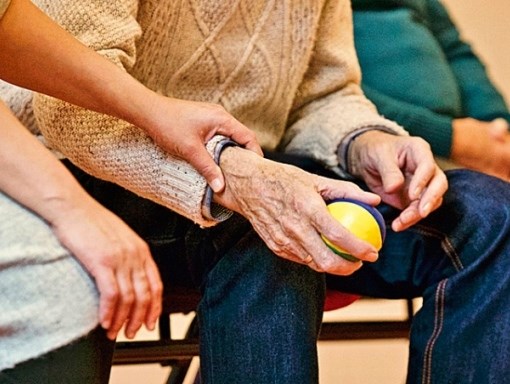Many of us on the North Shore believe that there is no poverty here.
When we look around us that appears to be true, given the North Shore’s beautiful setting with its housing, shops, scenery and green spaces. Never mind the complaints about parking, increased development and traffic, we seem to be surrounded by wealth.
But in British Columbia, recent reports and statistics show there is growing evidence of increasing poverty in families, for single people, for the disabled and most notably for seniors.
In a 2018 report, BC Seniors’ Report Card, authored by the Social Planning and Research Council and the United Way, it states that: “In 2015, British Columbia had the highest seniors poverty rate of any province or territory in Canada. B.C.’s seniors’ poverty rate of 8.8 per cent, based on the low income measure after tax, was well above the Canadian average of 6.6 per cent. Our seniors’ poverty rate was more than double the rates in Yukon (4.1 per cent), Alberta (3.4 per cent) and Saskatchewan (3.1 per cent).
While the North Shore does not compare to the Downtown Vancouver, 2015 statistics from B.C. census data, available in the same report, show that in North Vancouver (including the city and district) 7.6 per cent of the population is low income, and in West Vancouver 6.3 per cent of the seniors population is low income. In my opinion, with so much affluence on the North Shore, these statistics are inexcusable.
Jane Seyd, reporter for the North Shore News, looked at a 2019 West Vancouver Community Foundation report and noted: “the report points to 14 per cent of West Vancouver households being in ‘dire housing circumstances’ spending at least half of their household income on shelter costs. Almost half of those people are seniors.”
With an affordable housing crisis this number is likely to increase across the North Shore. Many senior renters are facing evictions from apartments or homes which have been, up to now, affordable. Unfortunately, much of current housing for seniors is in buildings which are aging and must come down only to be replaced with newer expensive developments or they must be renovated, resulting in increased rents. For many seniors this might mean moving away from their communities, or even homelessness.
For seniors who own their homes there are also issues. Seniors may find themselves house rich and cash poor which leaves them with little disposable income and few options to get their needs met.
On the North Shore many community organizations are stepping up to the plate to assist low income seniors.
These community organizations have been noting an uptake in low income seniors accessing their services and are trying to reach out to those seniors. At a recent Services to Seniors Coalition gathering, sponsored by Lionsview Seniors’ Planning Society, presenters from the North Shore Family Services Christmas Bureau talked about the rise in seniors accessing their programs. And Michele Varley of North Shore Family Services noted that: “over the last few years we have seen a dramatic increase in seniors coming through our program. In 2017 we saw a 24 per cent increase in numbers and in 2018 an additional increase of 28 per cent. She also noted, “there were a number of seniors who were isolated, home bound and were not able to come out to apply for support.”
This sparked some of their volunteers to form a committee to respond to the issues and in doing so they developed a community outreach strategy which included visiting seniors in their homes to make them aware of their program and perhaps connect them with other resources. To volunteer, donate or apply for support, the Christmas Bureau can be reached at 604-984-9627.
Some seniors must make choices between paying their rent and obtaining necessities such as sustainable and varied food, clothing and prescription drugs. On the North Shore community organizations are stepping up to assist with these concerns.
In talking to the folks at Harvest Project, a North Shore organization which assists those who are at risk for homelessness, they say they have noticed an increase in low income seniors accessing their service. They offer seniors a six-month program to provide help in finding resources, food and clothing. The North Shore Neighbourhood House, a multi-service organization, offers the Food Hub, which is a partnership with Greater Vancouver Foodbank to provide food to low income seniors usually every Wednesday (and on those days seniors can get free soup and a bun). Two-hundred people access the Food Hub, with many being seniors.
Poverty in our community affects us all – let’s support those who are trying to do something about the immediate effect. As individuals we can help by sending donations to these organizations or volunteering.
Margaret Coates is the co-ordinator of Lionsview Seniors’ Planning Society. She has lived on the North Shore for 48 years and has worked for and with seniors for 21 of those years. Ideas for future columns are welcome Email: [email protected].



